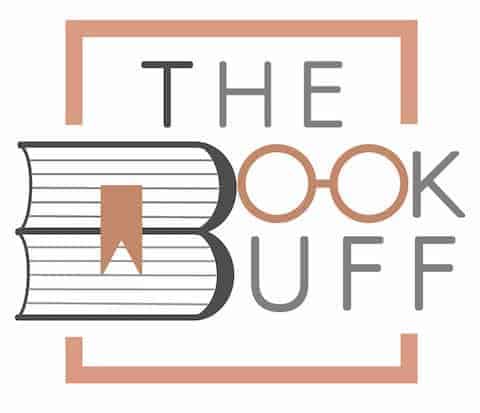Negative Effects of Reading [Protect Yourself From These!]
Disclosure: This post may contain affiliate links. – meaning I may get a commission if you decide to purchase through my links, at no additional cost to you.
When reading in general, or reading as a hobby, is discussed, the focus is normally on all the benefits it holds for the reader. You may sometimes wonder whether reading is this “magic activity” with no negative effects.
Although reading as a hobby has many benefits, excessive reading might cause negative effects for some readers. These not only include physical aspects like eyesight-degrading, and sore neck and back muscles, but also mental and social aspects like adverse interpersonal behavior. Fortunately, most negative effects can be prevented or rectified.
In this article, we’ll have a look at some of these negative effects and how they can be prevented, rectified, or managed.
The Negative Effects of Reading
Although some readers read as much as a book a day and rarely ever experience any negative effects, excessive reading may have negative effects as well. Generally speaking, readers don’t experience only the benefits or only the negative aspects, but a combination of both.
It is a matter of managing the good and the bad. When managed effectively, the benefits overshadow the negatives when it comes to reading. It is almost like medicine that prevents or cures an illness but might also cause bad side effects for some.
But it is important for frequent readers to take note of these potential negative effects of excessive reading. If you know what they are and what symptoms will normally indicate that you are becoming prone to one of these negative effects, you can take counteractions to prevent further “infestation.”

Let’s look at eleven of the most important possible negative effects of excessive reading.
1. Reading Might Harm Your Eyesight
Poor or degraded eyesight is often attributed to excessive reading. This may be so but is generally only true if you read when there is not enough light or you hold your book in such a way that you put a strain on your eyes when reading. Then it can, in the long run, cause poor eyesight.
One of the first signs indicating that it is in fact your reading habits that affect your eyes is when you are experiencing blurry eyesight while you’re reading or just after you’ve read your book.
When this happens, the first thing to do is to deliberately ensure that your book is always more than one foot away from your eyes when you read.
Then make sure that when you read during the daytime you have enough natural light. And remember, when you don’t have natural light or you are reading during nighttime, a person needs on average, at least a 450 lumens (40 watts) light to read comfortably.
If the blurring persists, consult your eye clinic.
2. Reading Might Harm Your Hearing/Listening Ability
The negative effect reading has on your hearing will not cause the loss of your hearing in a physical sense. The negative effect has more to do with your listening ability than with your physical hearing ability. You focus so much on what you are reading that you don’t hear when somebody speaks to you.
This can lead to the negative perception that you don’t want to speak to other people or are snobbish. The earliest symptom of this negative effect is often that people don’t spontaneously speak to you anymore.
In extreme cases, people start taking you off their invitation lists and you can become more and more isolated. Fortunately, you can rectify this problem. Show other people that you want to socialize, but also let them know that you want some private time to read your book.
For instance, when you are in the staff room during lunch and want to use most of your lunchtime to read your book, first socialize for a few minutes with other staff members and then tell them that they must excuse you as you want to read your book. Ask them to tap you on your shoulder to get your attention while you are reading.
3. Reading Might let You Lose Track of Time
To lose track of time when reading is a problem that has the possibility of causing serious problems. Some readers get so involved in the book they are reading that they don’t notice the time.
An office worker, for instance, can get so intrigued by a book during lunchtime that he doesn’t notice when he has to go back to the office. This can be seen by the supervisor as negligence.
But it can have more serious consequences if you have to attend an important meeting and get so intrigued in your reading when you are waiting in the reception room, that you completely lose track of time and miss the first part of the meeting!
Fortunately, situations like this can be prevented by simply setting an alarm on your mobile.
4. Reading Might Cause Sore Muscles
Sore muscles might be a negative effect of reading. When you spend lots of time sitting down when reading, you might from time to time experience sore muscles, especially in your neck, shoulders, and back. Generally, these pains are a result of sitting incorrectly when you are reading.
You can avoid the sore muscles by simply always making sure that you sit correctly when you read. The best position to read is with your feet on the ground in such a way that the chair doesn’t cut off the blood circulation, and keeps your back supported and straight.
Your book should be on eye level without bending your head. To achieve this you can support your elbows with pillows.
5. Reading Might Let You Lose Perspective and Instigate Fear
The storylines of novels frequently change your perspective on real-world events. Most of the time it is a positive change, but reading can also give people negative and unfounded perceptions if they do not distinguish between fiction and real life.
Perspective
When, as an example, you are reading a story about a cheating spouse and you’ve seen your spouse earlier in the day in conversation with someone of the opposite sex, you can start worrying whether your spouse is cheating on you.
You can even later believe that your spouse is cheating on you just because the character in the story is doing it under the same circumstances.
Fear
Sometimes when people read a story about a rare disease they fear that they will also get the same disease. In extreme cases, their fear can be so strong that they isolate themselves from people who may show the same systems as the character in the book.
6. Reading Might Lead to Over-identifying with Fictional Characters
Over-identifying with the characters in the story can cause readers to have unrealistic expectations of people and situations in real life. When real-life people then don’t meet these expectations the readers are disappointed and risk losing out on the joys of real life.
7. Reading Might Give you a Feeling of Guilt
Although many readers manage to read a lot and still have time to attend to everyday issues, some people get so involved in the book they are reading that all other aspects of their life get less attention. They spend less time with their families and don’t have enough time for normal daily chores.
Often, the result is that after the person has read the book he or she feels so guilty about the neglected things that the feeling of guilt overshadows the joy of reading the book.
Fortunately, if this is a problem you have, there is a solution. Plan your days and stick to the schedules. Also, discuss your hobby with your family and explain why you spend so much time on your hobby.
When they understand your passion, and you are consciously making time for interpersonal relations and house chores, you don’t have to feel guilty anymore. And for the repairs at home – phone the handyman!
8. Reading Might Entice You to Hide from the Real World
A serious negative effect of reading is that because you enjoy it so much to “live” in the fictional world of the stories you read, you want to escape to a fictional world whenever you can’t cope with your problems in the real world.
Instead of trying to resolve your real-world problems you ignore them and escape to a “better” world by reading a book. The more you get intrigued by the book’s “better” world, the more you forget your real problems.
A person who uses this technique to hide from problems uses reading in the same way a drug-addicted person will use drugs to “escape” from reality.

9. Too much Reading Might Lead to Bad Sleeping Habits
If you don’t have the self-discipline to put down your book to get enough sleep your reading can lead to chronic insomnia. As you just can’t put down the book before you’ve read it up to the end, you can easily go without sleep for a whole night, or only sleep for a very short period.
This can result in being a very tired person at work the next day and if this is happening frequently, your productivity can be influenced over time.
10. Too much Reading Can Lead to Bad Eating Habits
When you are reading too much a day and lose track of the time you easily eat either too much or too little. You may be eating snacks while you read and when you are finished with your book you are not hungry and go without a nutritional meal. Or you don’t have time to prepare a good meal and just order comfort fast food.
11. Too much Reading can Lead to Physical Weakness
As reading is a physically passive activity, you don’t get a lot of movement when reading for long periods. If you read much and don’t make time to exercise by taking a walk or doing a workout in your home or gym, your body will get weaker over time.

About the Author
Akansha is a former business journalist and a seasoned communications professional. She is the founder of TheBookBuff, an avid storyteller, and a lifelong biblophile! Check out her profile page to know more about Akansha.

![Does Reading Improve Memory? [Here’s What We Found!]](https://thebookbuff.com/wp-content/uploads/2021/10/puzzled-woman-thinking-and-holding-clipboard-while-22C2V42-optimized-300x200.webp)
![How to Access Kindle Unlimited Library? [Complete Guide!]](https://thebookbuff.com/wp-content/uploads/2022/11/kindle-g82b6150b9_1920-300x200.jpeg)
![Does Kindle Unlimited Include All Books? [Full Guide!]](https://thebookbuff.com/wp-content/uploads/2022/09/aliis-sinisalu-yzVxz_OYVxU-unsplash-300x225.webp)
![How Does Reading Affect Your Brain? [7 Positive Effects!]](https://thebookbuff.com/wp-content/uploads/2021/11/reading-with-mom-2021-09-24-02-55-24-utc-optimized-300x200.webp)

![Why is Reading Good for You? [With 21 Key Benefits!]](https://thebookbuff.com/wp-content/uploads/2021/09/this-is-an-interesting-read-MRPTDAV-optimized-300x200.webp)